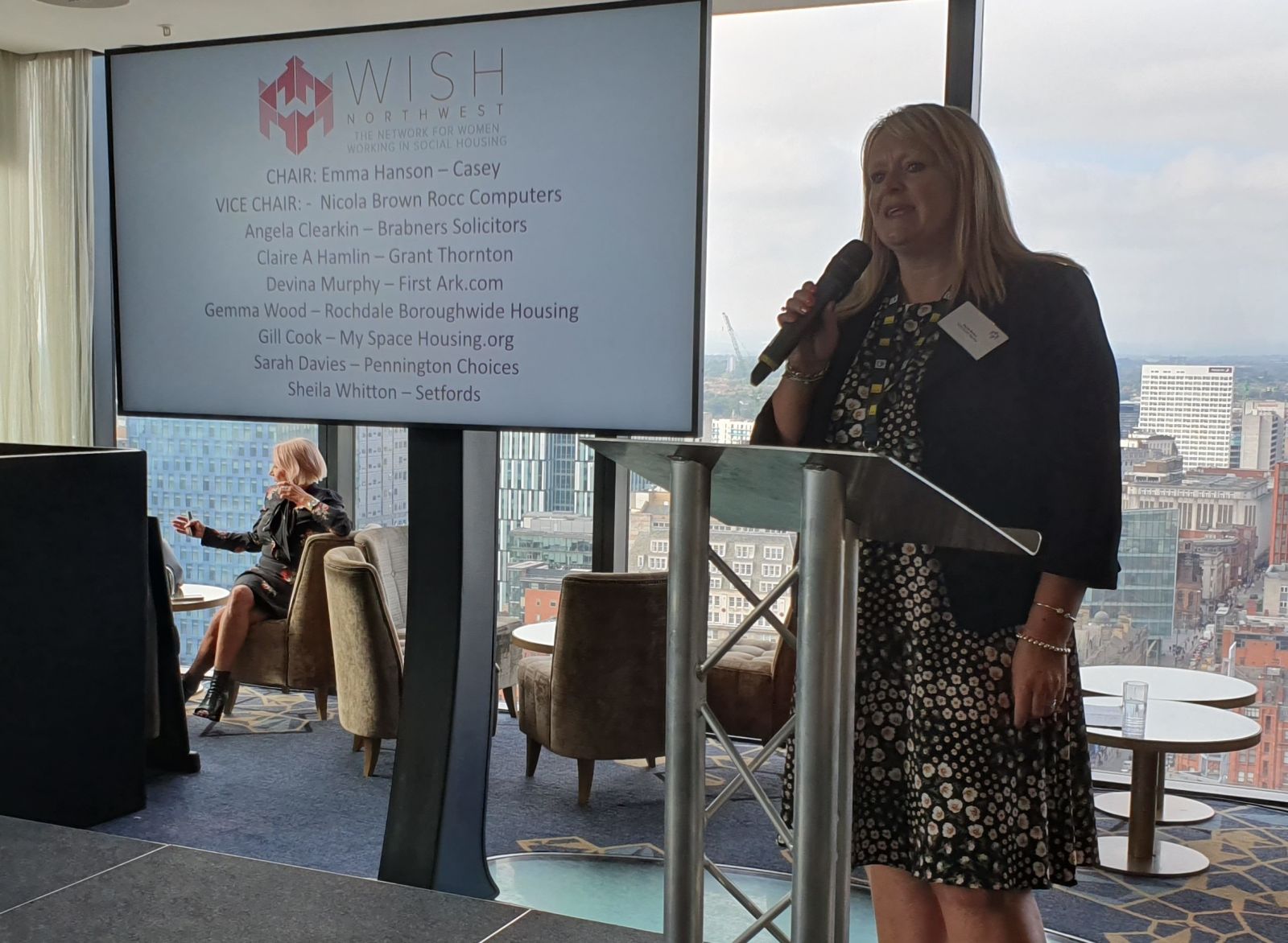Wednesday 3rd July 2019
Women in Social Housing (WISH) was formed in London in 1998, as an informal group where women from the sector could share their experiences of working in a male-dominated environment.
The organisation has evolved greatly since those early days, supporting women working across every discipline of UK housing, in the public and private sector, while promoting gender equality.
It now has nine regions with a tenth set to launch later this year and as the number of regions and members has increased WISH has had to continue to evolve in order to deliver on its mission.
Earlier this year, it completed the process of becoming a community interest company (CIC) – a special type of limited company which exists to benefit the community rather than private shareholders.
The CIC was officially launched at CIH Manchester during WISH’s annual drinks reception at the Hilton.
WISH co-founder and chair of WISH CIC Debra Constance outlined the new structure to members and talked about the need for the organisation to evolve.
“Over the years WISH has grown from a small networking group for women working in housing to a large national organisation helping to attract young women into the sector, supporting women with career progression and working towards supporting gender equality in the UK Housing Sector as a whole and reducing the gender pay gap,” said Debra.
“In discussion with our regions, we felt that it was necessary for our structure to evolve, as our remit has, to ensure that WISH continues to deliver for its members.”
As a CIC if the company makes any surplus it will be reinvested into increasing activity to benefit women working in the UK housing sector. The Women in Social Housing (WISH) CIC has been listed at Companies House as a Community Interest Company Limited by Guarantee.
“This legal structure protects all our volunteers in terms of their personal liability involved in running WISH,” said Nicola Dibb, co-founder and executive director of WISH CIC. “It has given us an excellent opportunity to consider a more efficient financial model, as well as bringing in governance guidelines to underpin more formally what WISH does and how it does it. A new board of directors will support myself and Debra in making decisions as to the future direction of the organisation and how our funds are reinvested to support our vision.”
WISH’s annual membership programme provides women in in the UK housing sector with an opportunity to make new contacts and feel supported by colleagues in a safe and open environment.
Members can access networking-based regional events, which provide opportunities to benefit from career progression through personal development; building confidence from peer-group support; encouraging success from motivating thought-leaders and gaining courage to challenge stereotypes and barriers.
These activities are also aimed at attracting women to the sector and motivating them to stay and WISH continues to promote the housing sector as a career opportunity for women, attending careers fairs, giving talks at schools and creating promotional materials.
“We run specific programmes designed to develop future talent and break down barriers that can exclude women from the UK housing sector,” explains Nicola “This approach addresses the gender imbalance in this traditionally male-dominated sector by showcasing the skills required, opening up career opportunities for women and encouraging more women to choose careers in the UK housing sector when they leave school, college or further education.”
WISH also continues to campaign for equality and is committed to working towards reducing the gender pay gap across the sector and supporting diversity. WISH helps women to find their voice and develop their confidence in tackling inequality and discrimination in the workplace and is also exploring how the mindset of the sector can be changed to where inclusion is second nature. This needs to be from attracting new female talent to how women can be encouraged to reach their full potential and not leave organisations due to policies or environments that do not support their needs.
.jpg)
